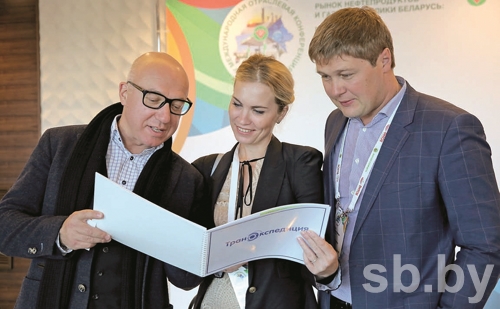
During conference’s work
The Senior Editor of the Platts News Bureau — Nick Coleman — talked much about global trends in terms of pricing for energy resources. According to him, the OPEC states are now demonstrating a lack of unity in decision-making. Moreover, cheap oil from Iran, Iraq and Eastern Kurdistan has introduced confusion. We should also not forget the strategic oil reserves in the USA. Moreover, suppliers from Canada, South America and Azerbaijan evidently influence the situation. Mr. Coleman believes Saudi Arabia will continue putting pressure on producers of shale oil from the USA; however, this pressure is already of minor importance for them. Shale oil producers have learnt how to cut their costs and the price of $35-40 per barrel seems enough for them. Our eastern neighbour — Russia — has hard times under such conditions. It has significantly increased production of energy from its deposits to reduce its losses. In the past six months, exports of Russian oil from sea ports have increased by 10 percent, but the country has failed to fill the budget to previous volumes. As a way out of the situation, the analyst advises the Russians to pay more attention not to supplies to the Mediterranean market, but to focus on Asia and China in particular.
Against the worldwide situation, Belarus is also experiencing hard times. The country mines little while processing of oil and production of light oil products is significant for the Belarusian GDP. Accordingly, there are many risk factors — including Russia’s tax manoeuvres and falling prices on oil products (which is even ahead of the fall in oil prices). However, manufacturers are not deviating from their plans and continue modernising their facilities to remain competitive.
Another interesting point was voiced at the forum. Sergey Kamornikov, the Deputy General Director of Belorusneft Production Association RUE, informed the audience that our country is looking for a possibility to buy deposits in partner countries.
By Alexander Benkovsky











